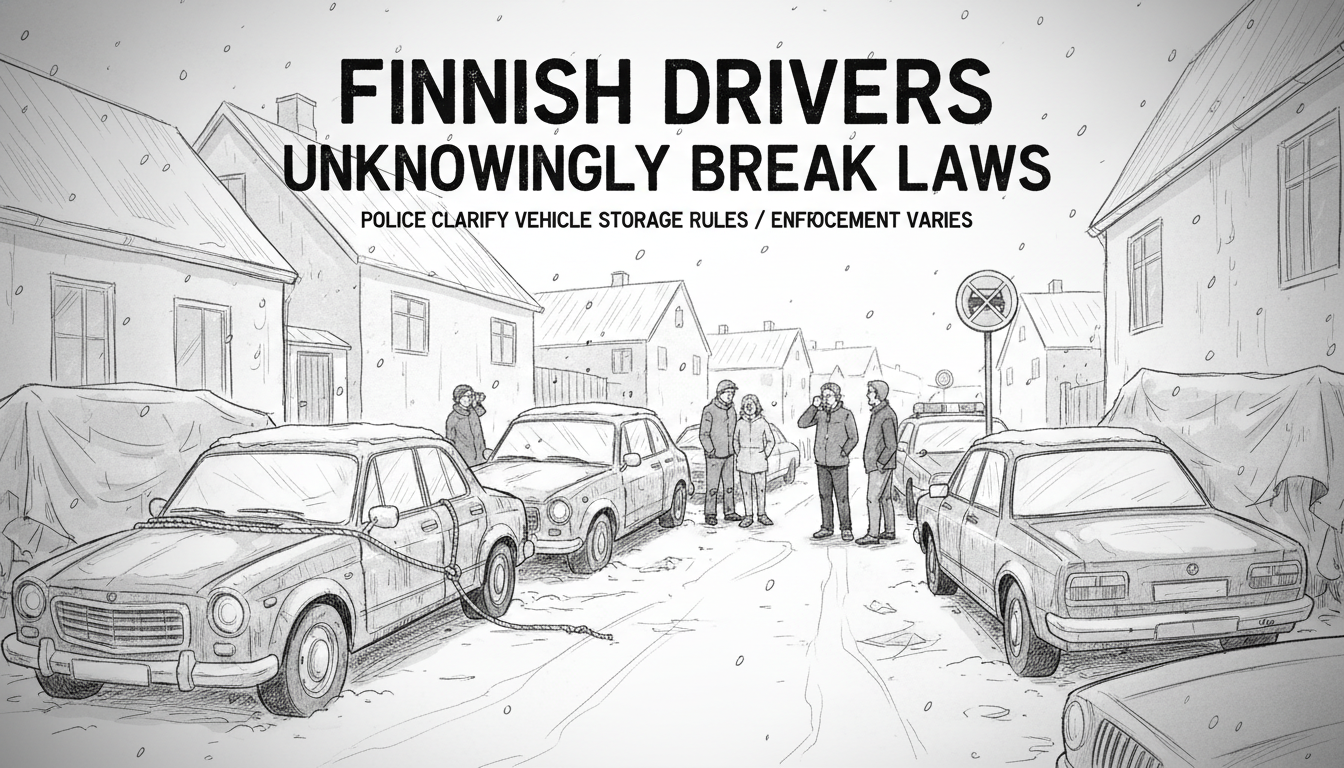Many Finnish motorists are unintentionally violating traffic laws by storing unused vehicles on public roads and parking areas. Police officials confirm the Road Traffic Act contains clear provisions against this practice, yet enforcement varies significantly across municipalities.
Police Inspector Konsta Arvelin recently emphasized the fundamental principle that roads serve traffic movement exclusively. The Road Traffic Act's Section 42 explicitly prohibits leaving, storing, or warehousing vehicles on roads that aren't actively used for transportation. Vehicles removed from traffic circulation clearly fall into this prohibited category.
Finnish cities demonstrate inconsistent approaches to enforcement. Oulu frequently issues parking tickets for improperly stored vehicles, while Kotka often allows them to remain undisturbed. This patchwork enforcement creates confusion among vehicle owners about their legal responsibilities.
The legal definition of vehicles not used in traffic received clarification from Finland's Supreme Administrative Court in a 2015 ruling (KHO 2015:119). The case involved two vehicles parked long-term on a Senate Properties parking area in Espoo. Both vehicles had been removed from traffic use and lacked valid inspections. The court determined these constituted illegally stored vehicles under traffic law.
Determining when a vehicle qualifies as unused requires multiple factors beyond mere traffic registration status. Police Inspector Arvelin and Automotive Association training manager Teppo Vesalainen identify several key indicators. These include expired inspections, missing insurance, unpaid vehicle taxes, and visible external conditions suggesting the vehicle isn't operational.
Municipal governments face practical considerations in enforcement. Urban space typically belongs to or falls under municipal control, giving cities authority over its usage. Many municipalities choose not to complicate residents' daily lives by strictly enforcing against every illegally stored vehicle that causes no traffic obstruction.
The legal landscape creates a challenging situation for vehicle owners. They must navigate varying municipal enforcement policies while complying with national traffic legislation. This discrepancy between law and practice leaves many Finns uncertain about proper vehicle storage procedures.
Nordic countries generally maintain strict regulations governing public space usage. Finland's approach reflects broader Scandinavian values balancing individual freedoms with collective responsibility for orderly urban environments. The current enforcement inconsistencies highlight ongoing tensions between legal precision and practical municipal governance.
International readers should understand that Nordic traffic regulations often exceed European Union minimum requirements. Finland's detailed traffic legislation exemplifies the region's comprehensive approach to public space management and traffic safety.
Vehicle owners facing long-term storage needs should consult municipal regulations before leaving cars on public property. Proper storage facilities or private property provide safer alternatives that avoid legal complications and potential fines.

